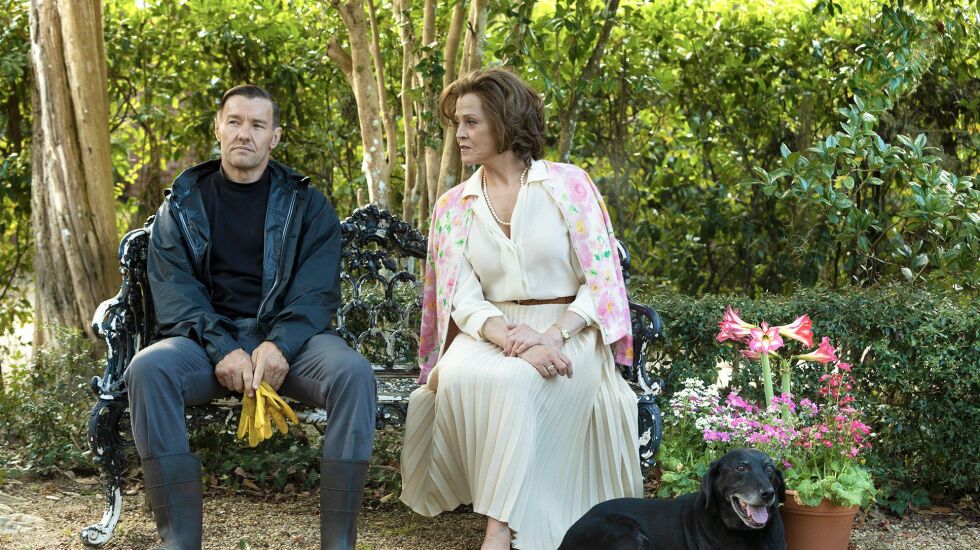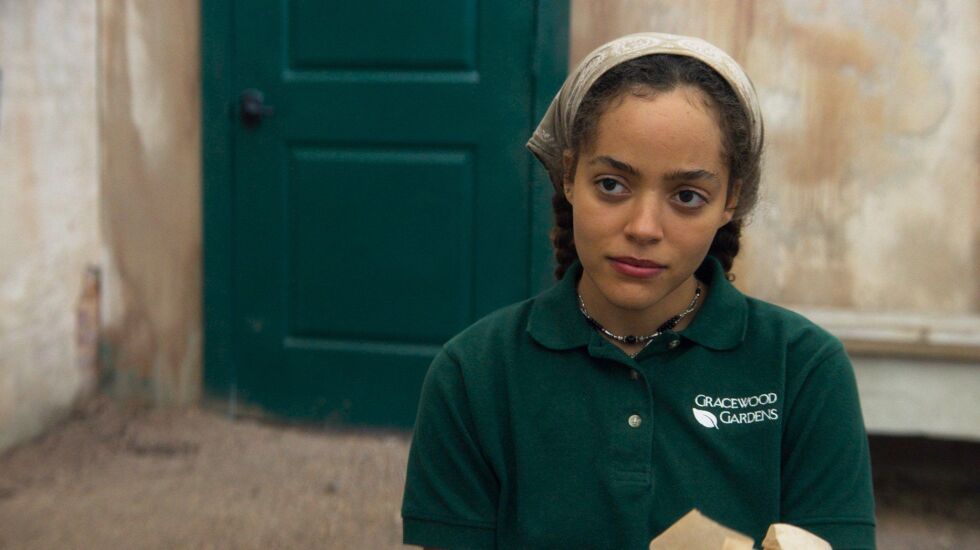
Paul Schrader is a first ballot Hall of Famer who wrote or co-wrote “Taxi Driver,” “Raging Bull” and “The Last Temptation of Christ” and is the writer or co-writer/director of films such as “Blue Collar,” “Hardcore,” “American Gigolo” and “Cat People.” In recent years, the 76-year-old writer-director has experienced a renaissance with two dark and electrifying films featuring classic Schrader anti-heroes going through some extremely heavy stuff: “First Reformed” in 2017 and “The Card Counter” in 2021.
Now comes “Master Gardener,” the last entry in this sort of spiritual trilogy about men who have been deeply scarred by past events and are struggling mightily to remain on the path to redemption. As has been the case with much of Schrader’s work, there’s a stark contrast between the stoic, flat-toned, world-weary nature of the protagonist as he tells his own story—and the bursts of violence and shocking revelations unveiled deep into the journey. At times, Schrader’s stylized script requires us to take some challenging leaps of faith, and the dialogue occasionally veers into WTF territory, as if we’re watching an overwrought stage production, but this is a gripping and tense slow build about a man who was once a monster and has literally turned to the soil to regenerate himself.
Joel Edgerton delivers powerful work as Narvel Roth, who sports a haircut reminiscent of a military man from a bygone era and quietly yet passionately presides over the small, young and diverse group of workers who tend to the plants and flora of Gracewood Gardens, a sprawling mansion in the South that almost surely was once a plantation and still retains some of that unsettling vibe.
Narvel always wears long sleeves, even in the steamiest and stickiest of weather, and it’s only when he doffs his shirt in his cabin at night that we learn this is because his torso is covered with tattooed reminders of his past as a white supremacist. (The flashbacks to Narvel’s former life are shocking and sickening and have us questioning whether we can truly root for this man, no matter how much he has tried to change.) Now in Witness Protection, he has reinvented himself, writing heavily metaphorical diary entries about how he has found a life in the gardens.
Sigourney Weaver is in high Tennessee Williams country as Narvel’s employer, Norma Haverhill, who owns the property, lives in the main house and is always dressed as if she’s off to a fundraiser for Richard Nixon, though she never seems to go anywhere. Norma exudes a chilling control over Narvel, regularly summoning him for dinner and, um, dessert, and judging by her casual sexism and racism, she might not be all that turned off by Narvel’s past.
On one such visit, Norma informs Narvel that her estranged, multiracial grand-niece Maya, who has gotten into trouble with drugs and has been mixed up with some bad actors, will be coming to Gracewood Gardens and will live in a guest cottage and learn the ways of gardening from Narvel. (That Norma wouldn’t think of having her own kin stay with her and doesn’t even meet with her for days tells you a lot about Norma. If you shake her hand, you might get frostbite.)

With Quintessa Swindell delivering a performance that pops with life and vibrancy, Maya almost immediately takes to the garden, listening intently to Narvel’s deeply philosophical lessons, leaning into the hard work and bonding with her co-workers. The gardens are indeed spectacular, but they have an almost sepia-toned, washed-out look, save for one gorgeous fantasy sequence. There’s something about Gracewood Gardens that is simultaneously liberating, in that Narvel and Maya have found a second chance here, and yet constraining, with the tightly controlling Norma looming in the background, and the sense that the entire property is removed in more ways than one from the outside world.
In the scenes when “Master Gardener” does venture beyond Gracewood Gardens, everything feels less stylized and more urgent. After Maya is roughed up by a local drug dealer known as R.G. (Jared Bankens), Narvel arranges for a rare in-person meeting with his Witness Protection liaison (Esai Morales) to ask for his help in keeping R.G. away from Maya. You can sense the respect these two have for one another, but also the boundaries between them. We know there will come a time when, like every retired outlaw gunfighter in every Western, Narvel is going to have to take matters into his own hands in order to truly liberate Maya and maybe himself as well. The path to redemption will not be free of blood.







